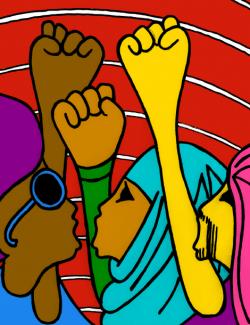AWID presents this analysis of the Secretary General's report as a contribution to the UN debates from a feminist and human rights perspective, and also as a follow-up to our critical analysis of the Post-2015 High Level Panel report.
From September 24 to October 4, 2013, the United Nations (UN) holds its 68th ordinary session of the General Assembly (GA) where deliberations aim to substantively contribute to shaping the post-2015 development agenda, including the Sustainable Development Goals. Civil society and other stakeholders will reunite around the inter-governmental processes as well as around a series of UN and civil society led events to influence the discussions. The report “A life of dignity for all: Accelerating progress towards the Millennium Development Goals and advancing the United Nations development agenda beyond 2015” released by the UN Secretary General (SG) on July 26 will guide deliberations amongst Member States at the GA on progress in the implementation of the Millennium Development Goals (MDGs) and recommendations for further steps to advance the development agenda post-2015.
AWID presents this analysis of the SG report as a contribution to the UN debates from a feminist and human rights perspective, and also as a follow-up to our critical analysis of the Post-2015 High Level Panel report. We recognize the GA is a critical political moment for ensuring that the future international development agenda is aligned to human rights principles and gender justice, building a strong foundation for long‐term, sustainable, inclusive, and just development for all.
Our main points on the proposals put forward in the SG report are:
-
We welcome the references to the need to apply a human rights framework for a development agenda to take root. We would also like to lay emphasis that the post-2015 development agenda should be holistic, inclusive, just, equitable, people-centred and universal, and should aim to eradicate poverty, promote social inclusion, women’s rights and sustainable development within a rights-based framework.
-
We reiterate the concern on the need to have a more coherent and stronger articulation of the inter-linkages between the fourteen proposals for governments outlined in paragraphs 83 to 96 of the SG report.
-
We highlight the concern around the lack of concrete mechanisms and financing of implementation and monitoring framework of the post-2015 development agenda.
-
We stress the need to put gender equality and women’s rights at the centre in any development framework beyond goals setting.
-
AWID calls for a meaningful, inclusive and transparent intergovernmental with civil society inclusion process that involves women and feminists in all their diversity, at all stages.
